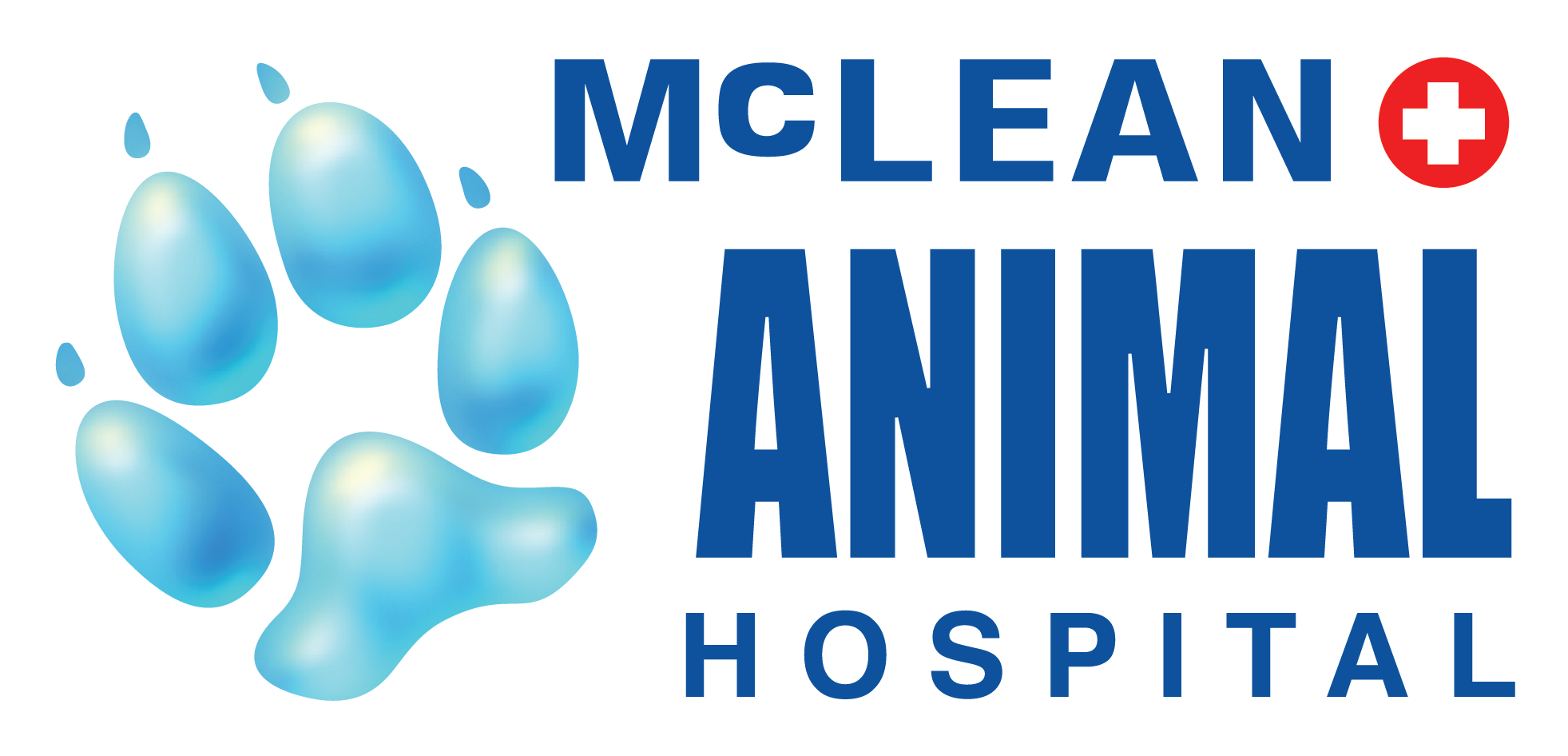We have heard a lot of concerns in the past few months about some of flea and tick products that fall into the “isoxazoline class” such as Nexgard, Bravecto, Simparica, and Credelio. It all stems from a recent statement from the FDA relating to the potential for neurological effects with the use of these drugs. Its understandably concerning for clients who always want the best for their pets, so we are going to clear up some facts about this class of drugs and their actual relation to these side effects.
McLean Animal Hospital has never experienced any patients with neurological signs since using the drugs Nexgard and Bravecto for the past several years (we have nothing against Simparica or Credelio, but we prefer the ease of use of the former products). Most of the staff members give their dogs Nexgard and Bravecto as well. We must have prescribed thousands of doses at this point, and we’ve never seen a reaction. The Merck representative explained to us that the classification of the neurologic effects with Bravecto use is described as “rare,” which medically means that an adverse event of 1 in 10,000 cases is what that means.
Bravecto seems to be getting the worst of the press right now because they are the only company that needs to update their package to include a caution about potential neurological effects. On the pre-FDA approval testing, Bravecto did not have any reported neurological events, so there was nothing to declare when the drug was first released, which is why they did not have a caution on the packaging until just now. The other drugs did have some neurological events noted in their pre-FDA approval testing, so they launched their products with a caution already on the package. All of these effects were extremely rare, which is why they were all declared safe to come to market.
The general public might not know this, but all drug companies take feedback from clinics very seriously and open case files on any type of reaction to a medication (whether it be vomiting, lethargy etc. or a seizure or tremor). They take names of clients and follow up with us to check up on the health status after any reaction. All of the reactions are logged in a database that can be tracked by the FDA. An interesting thing to note is that the health status of any pet does not preclude them from reporting the reaction. For example, an epileptic dog that is on medication for seizures that have a seizure while taking any isoxazoline drugs would still report that to the company, and they still have to log it in their files, even if the patient had this pre-existing condition.
In conclusion, if anyone has concerns about any of the medications their pet is prescribed, we encourage you to come to our staff with your questions. There are many medication options for protecting against heartworm, flea, and ticks. The risks of heartworm and Lyme disease, in particular, can be very serious for pets, and we feel that the benefit of these drugs far outweighs the very rare side effects that can occur.
If you have any questions, please give us a call at 416.752.5114.
Written by: Stephanie, RVT




